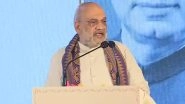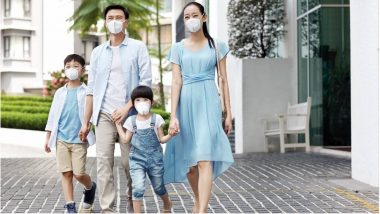A face mask is provided to consumers to filter dust particles and to breathe clean air. But according to a recent report published in Occupational & Environmental Medicine, face masks available to people in China for protection against air pollution vary widely in their real-world performance. The masks may filter tiny particles as advertised, but face size and shape as well as movement can lead to leakage as high as 68%. WHO data says that nine out of 10 people in the world breathe air containing high levels of pollutants. 14 Indian cities are listed among the 20 most polluted cities in the world.
Senior study author Miranda Loh, an exposure and environmental scientist at the Institute of Occupational Medicine in Scotland said, “Even if the filtration efficiency of the mask is high and the mask fits the person initially, the mask may not continue to give a good fit as the person goes about their daily activities – walking, talking and more.” She further said, “It is important for people to understand that not all masks are effective at reducing to particles in air pollution. And none of these masks reduced the concentration of pollution gases such as nitrogen dioxide.” The study team also writes that there is very little information provided to consumers about which mask will offer the best protection.
The study was conducted by sampling masks in Beijing as air pollution causes an estimated 1.6 million premature deaths in China each year. The team purchased masks that claimed to protect against fine particle pollution known as PM2.5, which includes soot, droplets and other particles smaller than 2.5 microns in diameter. These particles can penetrate deep into the lungs and enter bloodstream. In filtration tests of the masks after being exposed to diesel exhaust, the average particle and carbon penetration ranged from 0.26% to 29%, depending on the masks. Volunteers who were also exposed to diesel exhaust while performing tasks such as sitting, talking, etc, average leakage around mask edges ranged from 3% to 68% during sedentary tasks and 7% to 66% in active tasks.
Lead author John Cherrie said, “If it’s important for you to protect yourself or your family with masks, choose the best one you can and look for one marketed to workplaces. Don’t choose the cheapest option. Choose the one that’s most likely to do the best job.” Richard Peltier of the University of Massachusetts Amherst told Reuters Health, “Air pollution is a global problem that is important for not only Beijing, but also Boston and Barcelona. Breathing pollutants, especially particulate matter, is very harmful, causing millions of early deaths across the world.” Peltier also said that studies should also focus on the main reasons why masks seem to fail – whether the material itself is faulty or the masks don’t fit very well and more.
The WHO has called upon Southeast Asia Region to aggressively address the burden of household as well as outdoor air pollution. The region comprises 2.4 million of the seven million premature deaths caused by household and ambient air pollution together globally every year. The PM2.5 included pollutants like sulfate, nitrate and black carbon which pose the greatest risk to human health. It is important to reduce pollution by cutting the source from its roots.
(The above story first appeared on LatestLY on May 07, 2018 01:28 PM IST. For more news and updates on politics, world, sports, entertainment and lifestyle, log on to our website latestly.com).













 Quickly
Quickly


